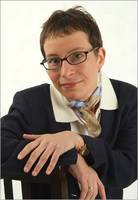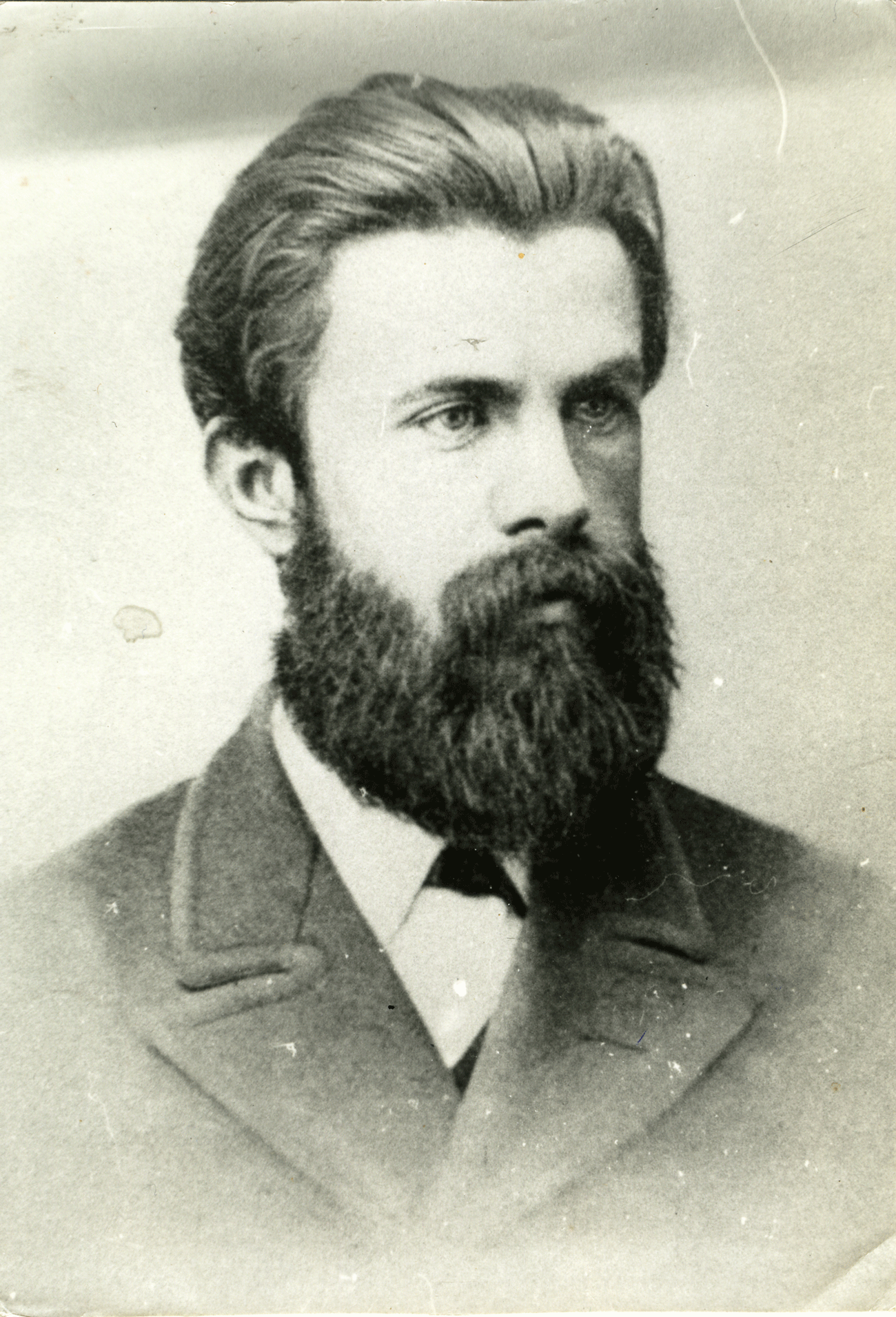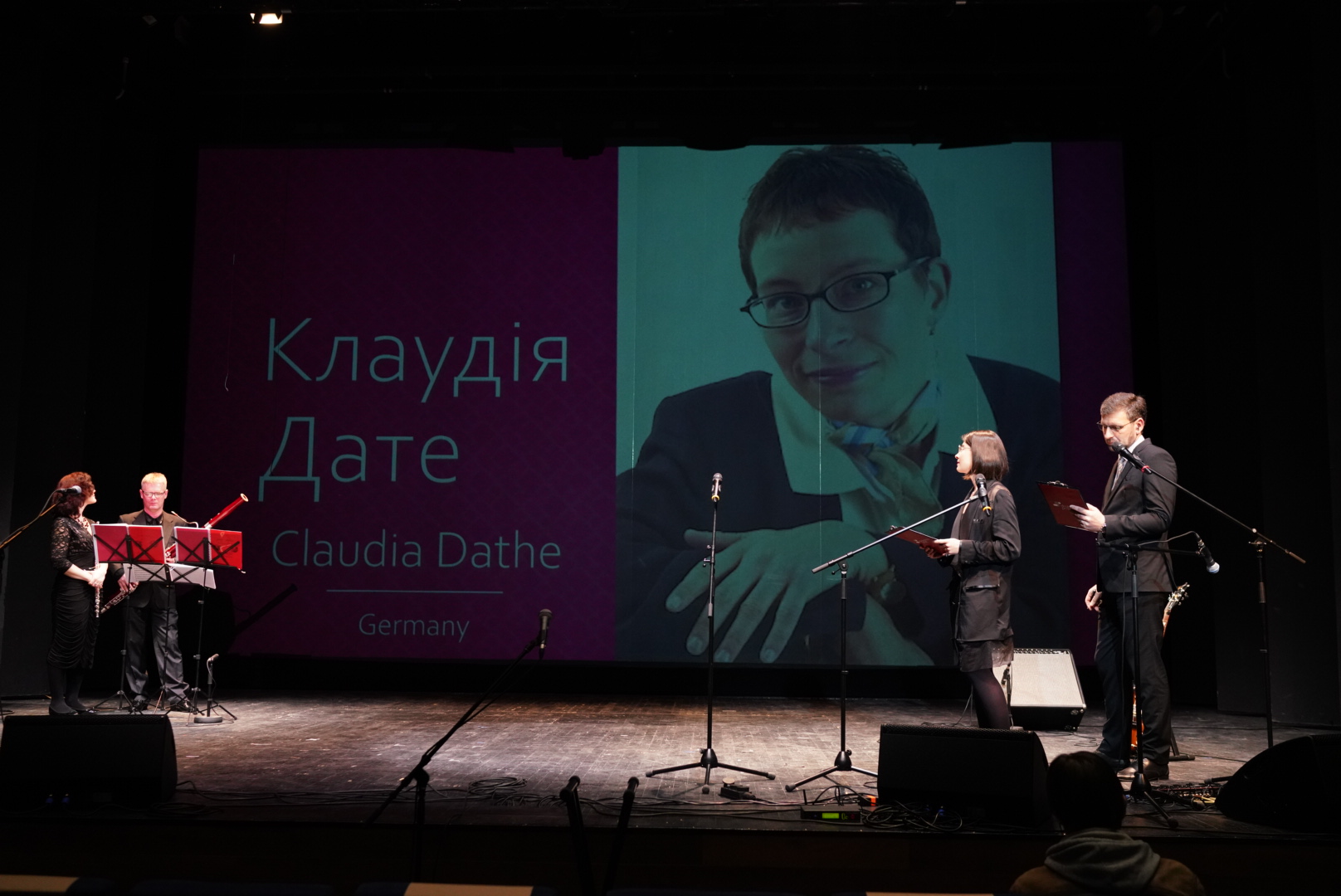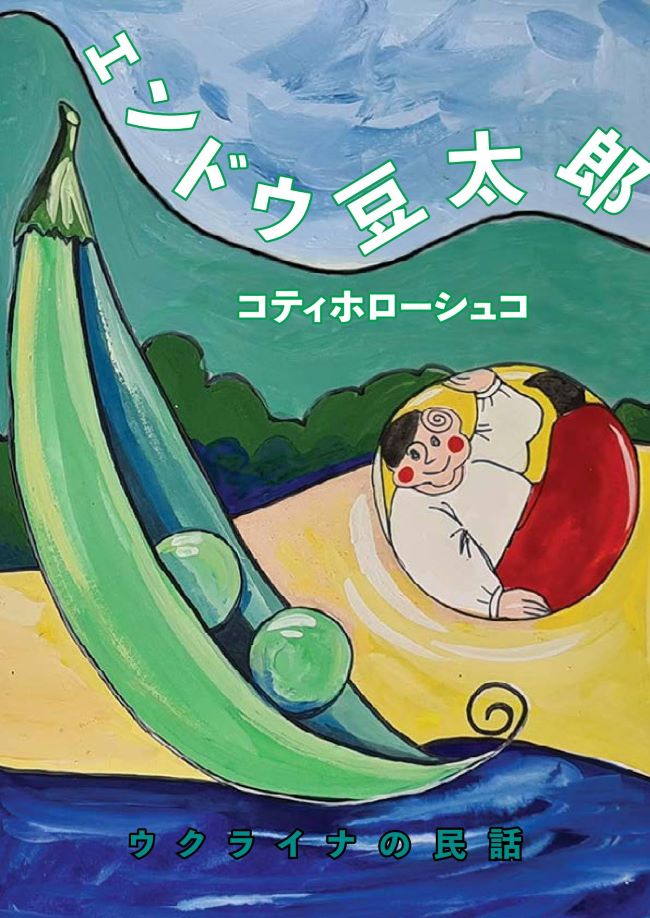The Drahoman Prize is also newly-established. It is an annual award for the best translation of a literary work. The inaugural prize went to Claudia Dathe from Germany.
The short list included finalists from Germany, Poland and The Czech Republic. Each had the opportunity to share their unique path to translating Ukrainian language literature.

Translate Ukraine — a major step in cultural revival and diplomacy
Throughout the 20th century, Ukrainian literature was almost totally unknown to the world. During the 30 years since Independence, a literary revival has taken place. Many new authors have emerged, finally freed from the Soviet repressive apparatus.
Previously censored authors have been rediscovered, such as Mykhailo Domontovych whose biography itself is a novel. Belonging to the generation of Ukrainian modernists, most of whom were assassinated under Stalin, Domontovych lived in Munich in the 1940s as an agent of the Soviet secret service to have the opportunity of writing and distributing his literary works. Moreover, he could maintain ties with the Ukrainian diaspora and the Free Ukrainian University of Munich.
Domontovych’s novels were never published under the Stalin regime but managed to be preserved and are now considered gems of contemporary Ukrainian publishing. Similar accounts exist about many other authors of Ukraine who were forced underground during the era of the USSR.
After the 2014 Revolution of Dignity, a burgeoning international interest in Ukraine steadily led to an increase in the number of translations from Ukrainian-language literature. Yet, Ukrainian literature still remains underrepresented on the world scale.
To shift this balance, the State established new post-Maidan cultural institutions, such as the Ukrainian Institute, the Ukrainian Book Institute, and the Ukrainian Cultural Foundation. They also launched numerous publicly-funded projects. For the first time since the aristocratic patrons of the 18th and 19th centuries, Ukrainian culture received a strong material boost. Among the most recent and internationally significant projects is Translate Ukraine.

The program has significantly raised awareness of Ukrainian literature. Ukrainian publications have appeared in major rankings of world literary magazines.
For example, Andriy Lyubka’s 2015 novel Carbide was included in a ranking of The Calvert Journal – a digital magazine of the contemporary New East (Eastern Europe, the Balkans, Russia, the Caucasus and Central Asia).
Carbide is an adventure novel about an eccentric history teacher who hatches a plan to build an underground passage that will unite Ukraine with the EU. Blending comedy and tragedy, the novel harkens back to the roots of Ukrainian literature in the 18th century.
In 2020, the English translation of Carbide was published by Jantar Publishing. Based in London, the publishing house focuses on previously unknown inaccessible Central and East European fiction.

Drahoman prize and honored translators
Translation does not only involve work with a book. Prior to actual translation, most of these specialists invest much time and energy in the study of the particular language as well as its cultural context.
These efforts are never reflected in translation payments, thus international translators who work with Ukrainian literature are at a considerable disadvantage. Not only are they uncompensated for their studies, they cannot count on regular orders from publishing houses due to low demand.
Unlike translators from such popular languages as English, German, French or Spanish, translators of Ukrainian usually also translate from other languages -- typically Slavic -- to make ends meet.
In an effort to support these translators, the Ukrainian Book Institute under the Ministry of Culture, the Ukrainian Institute under the Ministry of Foreign affairs, and PEN Ukraine established the annual Drahoman Prize in 2020.

The prize was awarded on 23 April to Claudia Dathe of Germany. All three international finalists were also honored: Claudia Dathe (Germany), Rita Kindlerová (Czech Republic) and Katarzyna Kotyńska (Poland). Highlights of their interviews follow:

1. Claudia Dathe
(Germany). Dathe coordinates literary translation projects at the University of Tübingen. In 2010, she initiated the establishment of the Translit association which is dedicated to the dissemination of Ukrainian literature in Europe. For the Drahomán Prize, she was nominated for two works: the German translation of Serhiy Zhadan’s poetry collection Antenna [Serhij Zhadan. Antenne] and of Oleksiy Chupa’s novel Tales of My Bomb Shelter [Oleksij Tschupa. Märchen aus meinem Luftschutzkeller].
Dathe described her journey to the translation of Ukrainian works:
“I worked in Kyiv in the early 2000s for the German Academic Exchange Service, which sends German language specialists to universities in various countries. At first, I taught technical translation to German at the Kyiv Polytechnic Institute in the early 2000s. I was lucky that at that time the Goethe Institute launched many projects just for literary translation. I realized that the Ukrainian language was different from Russian, but not so much that it was impossible for me to learn it at all.
In addition to Russian, I also knew Polish, and I’m grateful to Oksana Nika, who worked at the Shevchenko University and became my Ukrainian teacher. She helped me a lot, and endured all my mistakes. This was my way to the Ukrainian language ... and the first work I translated was the poetry of Lina Kostenko, which I really liked.”
She elaborated on the contemporary state of Ukrainian studies in Germany, acknowledging they were under-par and only available on a limited scale. However, she emphasized that interest in these studies was growing as Ukraine gains a stronger foothold in European geopolitics:
“We have a single university [in Germany] which has Ukrainian studies. It is in the very north of Germany, the University of Greifswald, such a small university… This is far from enough to really train high-quality specialists who could support Ukrainian literature not only in publishing houses, but also in other cultural and social organizations.
This is a very big problem. Even if we look at literary academic research, they simply do not happen with Ukrainian studies, unlike historical ones. Because people don't know the Ukrainian language, because there is no structure ... But I would like to thank the Ukrainian side once again, because after these grant programs of the Ukrainian Book Institute we feel a growing interest among German publishers.”
2. Rita Kindlerová
(Czech Republic). Kindlerová is a member of the Czech Association of Ukrainianists, the Czech Literary Translator Guild, the Czech Union of Interpreters and Translators, and the Society for Modern Greek Studies. She edits the Ukrainian literature section of the online literary journal iLiteratura.cz. Kindlerová was nominated for her Czech translation of Volodymyr Viatrovych’s publicistic work Ukraine: Classified History [Volodymyr Vjatrovyč. Ukrajinské 20. Století. Utajované dějiny].

Kindlerová came to translate Ukrainian via her stay in the US:
“I wanted to study Byzantine art at the University of Prague. Then I managed to go to the US The town where we lived had a very nice Byzantine Catholic community. We started going to their church [also known as the Ukrainian Greek Catholic Church] ... In fact, I became interested in Ukraine in America. And when I returned to the Czech Republic, there were no more available places for Byzantine studies, and I decided that it was best to study the successors of Byzantium – Kyivan Rus and Greece. And since Kyivan Rus is geographically Ukraine, I chose Ukrainian and modern Greek philology at the University of Brno. So, I began to study Byzantine art and modern Ukrainian literature.”
One of Kindlerová’s dreams is to translate Ukrainian classics writers Ivan Franko and Lesia Ukrayinka into Czech. Except for one book of selected poems by Franko, almost nothing of Ukrainian classics has been published in Czech.
“Now, also, interest in modernist Ukrainian literature of the early 20th century is growing, - says Kindlerová. - Pidmohylny's City was published. There are works of Ukrainian classics that will find their readers among ordinary Czechs who love to read ... You just need to put these translations on a different basis, put it on the relationship. Because Franko, for example, had a lot of contacts with Czech intellectuals, writers, poets, while Lesia Ukrayinka lived in Prague for some time, where her collection of family correspondence is preserved. From this relationship you can interest the reader and gradually move to their other works, which are already of universal meaning, which people can read around the world.”
3. Katarzyna Kotyńska (Poland) is a professor at the Institute of Slavic Studies at the Polish Academy of Sciences, a Ukrainianist, and a literary scholar. In 2013, she won the Angelus Award for the Polish translation of Oksana Zabuzhko’s The Museum of Abandoned Secrets
. Her Drahoman nomination was for a Polish translation of Victoria Amelina’s Dom’s Dream Kingdom [Wiktoria Amelina. Dom dla Doma, Warstwy Publishing House].
- Read also: Oksana Zabuzhko: Ukraine is at the forefront of a huge world battle that will transform humanity
Kotyńska at first “couldn’t learn the Ukrainian language because [I] didn’t know about its existence.” Later, she discovered Ukrainian culture and became a translator:
All [through] high school I thought I would study Russian. I was still one of those people who studied Russian at school compulsorily. I was fascinated by the Cyrillic alphabet, I was fascinated by the accent, sound, melody, everything. I was terribly lucky with the teacher. Finally, it was time to apply for Russian studies at the University of Warsaw. But there were an awful lot of people competing for places, and what I don't like is fighting for my place. So, I started thinking – if not Russian, then what. Already at school I started actively going to the Carpathians, here in Poland, in Lemkivshchyna and Boykivshchyna [regions that were populated by a majority of Ukrainians up to 1946 – ed.]. And at least you start asking the question "Where am I, from where are all these wooden churches and what is written on them?” You go to church, it's like the Cyrillic alphabet, but still you don't understand anything. I started thinking … thinking and so I became an Ukrainianist.
Kotyńska says that Ukrainian poetry is more or less represented in Polish translations. The problem is that there is little of Ukrainian prose:
For example, Ukrainian prose of the 1920s and 1930s. If we had talked five years ago, I would have said that it does not exist. A miracle happened during those five years. Mechanisms, institutions, funding opportunities, intellectual capacities have appeared, which allow us to talk now about texts that have already been published … For example, Domontovych's three-volume translation by me and Chemislav Tomenko. This translation was partly funded by the Polish Research Support Program. And with the support of the Ukrainian Book Institute, Valerian Pidmohylnyi’s City translated by Marcin Gachkovsky is about to appear. These are things that simply did not exist in Polish reading. But note that these are things that almost did not exist until the 1990s in the Ukrainian perception as well.
In total, 27 translators applied for the Drahomán Award from 14 different countries. The winner received a statuette designed by a prominent Ukrainian sculptor and a 2,000 EUR award. The Ukrainian Institute and the Ukrainian Book Institute also provide professional opportunities and promote the laureate’s work through translation residencies and participation in international fairs and festivals, among other privileges.
The prize was named for the Ukrainian intellectual Mykhailo Drahomanov (1841-1895).
“The name of the prize was not chosen at random, for throughout history dragomans were translators and interpreters of diplomatic missions. Ukraine’s cultural presence in the world cannot be full-fledged without qualified translators and quality translations. Thus, this award celebrates not only their excellence but also the contribution to Ukraine being better known and understood abroad,” said General Director of the Ukrainian Institute Volodymyr Sheiko.

Mykhailo Drahomanov (1841-1895) became one of the most significant contributors to Ukrainian translation of world masterpieces of the 19th century. Being a political theorist, economist, historian, philosopher, ethnographer and one of the founders of Ukrainian modern humanities, he understood well the significance of Ukrainian translations of world literature. Not only did he perform translation but he made all members of his huge family translate. Even his nephews who were musicians and physicists by profession produced translations. Their shared goal was to make the Ukrainian language no less represented in the literary and publishing domain than the Polish and Russian languages — the main rivals at that time.
Read also:
- Slovo House — how a special Soviet apartment block for writers became their prison
- For the first time, Ukraine will sponsor translations of Ukrainian literature to foreign languages
- All you wanted to know about Ukraine in one book and on one YouTube channel
- War Books. Recording the Russo-Ukrainian War in Crimea and the Donbas
- Eleven books to understand Ukraine’s ongoing struggle: a shortlist by Ukrainian politicians
- The rebirth of Ukrainian literature and publishing: famous contemporary authors and new policy for their support
- Where Putin’s media-wielding men in Ukraine get their money
- Meet Ukraїner, “project that tells the world about the least discovered country in Europe”
- “Medvedchuk effect”: censorship attempt fails in Ukraine as prohibited book sold out within an hour





